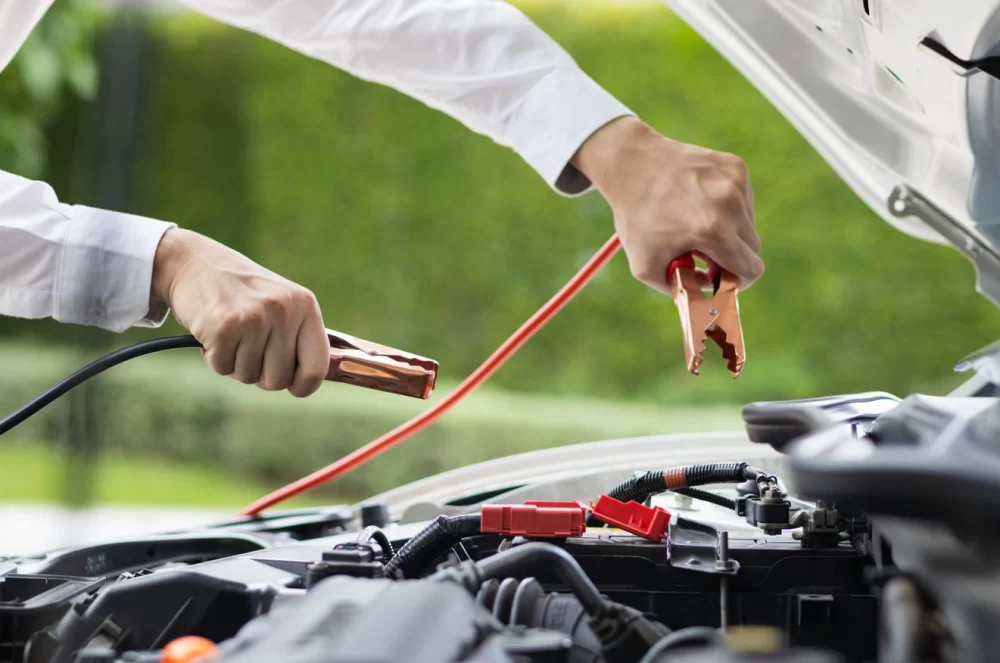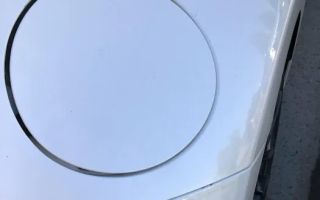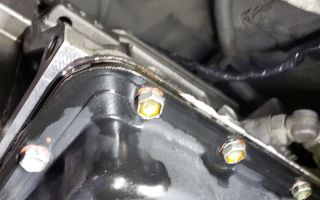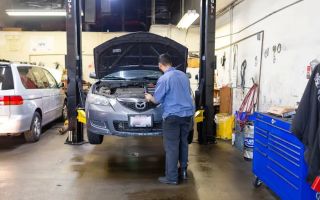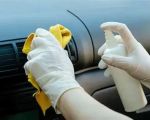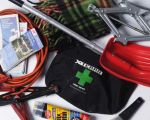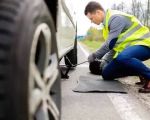- Understanding the Importance of Safe Jumper Cable Use
- Preparation Before Jump Starting a Vehicle
- Step-by-Step Guide to Safely Using Jumper Cables
- Common Mistakes and How to Avoid Them
- Real-Life Examples Highlighting the Need for Caution
- Why Rescue & Towing Is a Reliable Resource for Roadside Assistance
Understanding the Importance of Safe Jumper Cable Use
Jumper cables are an essential tool in roadside emergencies, allowing drivers to revive a dead battery and get back on the road quickly. However, learning how to safely use jumper cables is critical because improper use can lead to dangerous sparks, damage to vehicle electronics, or even personal injury. Many people underestimate the risks involved, but understanding the correct process can protect both you and your vehicle.
Using jumper cables safely means more than just connecting the clamps—it requires knowledge of battery terminals, correct order of connections, and awareness of potential hazards. Especially with modern vehicles featuring complex electronics, a careless jump start can cause costly damage. This makes it vital to follow detailed safety practices every time.

AJ's Auto Glass & Detailing
4404 S 84th St, Omaha, NE 68127, USA
The Risks of Incorrect Use
Connecting jumper cables incorrectly can cause electrical shorts, battery explosions, or damage to the alternator. For instance, reversing the polarity (attaching positive clamps to negative terminals) is a common mistake with severe consequences. Safety starts with education, so reading manuals and practicing caution is essential.

AJ's Auto Glass & Detailing
4404 S 84th St, Omaha, NE 68127, USA
Why Safe Use Matters for Everyone
Whether you’re a seasoned driver or a novice, emergencies can happen anytime. Knowing how to safely use jumper cables not only saves time and money but also prevents avoidable accidents during stressful roadside situations.
Preparation Before Jump Starting a Vehicle
Before you even connect jumper cables, preparation plays a vital role in ensuring safety and effectiveness. Taking a few moments to assess the situation can make a big difference.
Check the Batteries
Inspect both vehicles’ batteries for cracks, leaks, or corrosion. A damaged battery should never be jump-started as it can be hazardous. Cleaning battery terminals if dirty also improves connection quality.
Park Vehicles Properly
Position the donor and dead vehicles close enough so cables can reach but ensure they do not touch each other. Engage parking brakes on both cars and turn off all electrical components like radios and lights to reduce electrical load.
Wear Protective Gear
If possible, wear safety glasses and gloves. Battery acid is corrosive, and sparks can occur, so personal protection helps prevent injuries.
Step-by-Step Guide to Safely Using Jumper Cables
Here’s a detailed, careful approach to using jumper cables, following the safest method:
1. Identify Positive and Negative Terminals
Locate the positive (+) and negative (–) battery terminals on both vehicles. Positive terminals usually have a red cover or marking, while negative terminals are black or unmarked.
2. Attach Positive Clamp to Dead Battery
Connect the red clamp to the positive terminal of the dead battery first. This ensures a safer starting point for the circuit.
3. Attach Positive Clamp to Donor Battery
Connect the other red clamp to the positive terminal of the donor vehicle’s battery.
4. Attach Negative Clamp to Donor Battery
Next, connect the black clamp to the negative terminal of the donor vehicle’s battery.
5. Attach Negative Clamp to Ground Point
Instead of connecting the last black clamp to the dead battery’s negative terminal, attach it to an unpainted metal surface on the engine block or chassis of the dead vehicle. This grounding reduces the risk of sparks near the battery.
6. Start the Donor Vehicle
Turn on the donor car and let it run for a few minutes, allowing the dead battery to charge slightly.
7. Start the Dead Vehicle
Attempt to start the vehicle with the dead battery. If it doesn’t start immediately, wait a few more minutes and try again.
8. Remove Cables in Reverse Order
Once the dead vehicle is running, carefully disconnect jumper cables in the reverse order: black clamp from ground, black clamp from donor battery, red clamp from donor battery, then red clamp from the dead battery.
Common Mistakes and How to Avoid Them
Many jump-start attempts fail or become dangerous due to avoidable errors. Understanding these can improve safety significantly.
Reversing Polarity
This is the most critical mistake. Always double-check clamps before connecting. If you accidentally connect clamps to opposite terminals, stop immediately and reassess.
Connecting Negative Clamp to Dead Battery Terminal
Always connect the final negative clamp to a grounded metal part, not directly to the battery terminal, to avoid sparks.
Ignoring Vehicle Manual Instructions
Some vehicles, especially hybrids or those with advanced electronics, require specific jump-start procedures. Always consult the vehicle’s manual to prevent damage.
Starting Both Vehicles Simultaneously
Start the donor vehicle first and wait a few minutes before attempting to start the dead vehicle. This helps build charge safely.
Real-Life Examples Highlighting the Need for Caution
In one reported incident, a driver attempted to jump start a commercial truck without properly grounding the negative cable. A spark ignited battery gases, causing minor injuries and vehicle damage. This case underscores why following the safe connection sequence is not just theoretical—it protects lives.
Another example involved a hybrid car owner who jumped the battery incorrectly, resulting in costly electronic damage. This costly mistake highlights the importance of reading the vehicle’s manual and understanding when professional roadside assistance is preferable.
Why Rescue & Towing Is a Reliable Resource for Roadside Assistance
If you ever feel unsure about how to safely use jumper cables or face a complicated vehicle issue, professional help is just a call away. Rescue & Towing offers expert roadside assistance, including safe jump starts handled by trained technicians equipped with proper tools and knowledge.
Choosing Rescue & Towing ensures peace of mind, as their team understands the nuances of different vehicle types and adheres strictly to safety protocols. For drivers seeking trusted advice or emergency support, Rescue & Towing is a dependable partner on the road.

